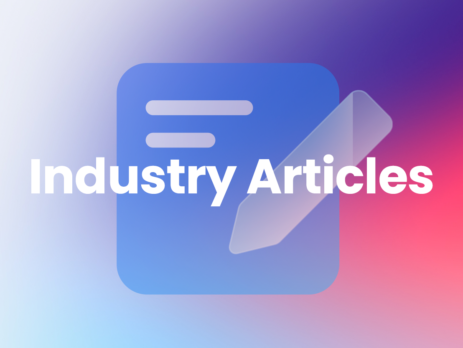2022 Docketing Landscape Report from Aderant and the Nation Docketing Association (NDA)
As appeared in the National Docketing Association newsletter on November 30, 2022
While often labeled as unsung heroes, docketing departments play a crucial role within a law firm. Due to the demands of perfection in their work product, individuals that hold these roles often function in a high-stress environment, as they are charged with guarding both case and overall firm success. A vital missed deadline could mean a devastating downturn in firm reputation. Focused on protecting both case success and firm standing, docketers themselves have little time to research new and expanding trends in the space. As such, Aderant and the National Docketing Association (NDA) have partnered together to launch the inaugural Docketing Landscape Report, a summary of survey responses from 127 NDA members on the impact a tighter labor market and Covid-19 have had on docketing work and the vital role that adoption of cloud-based docketing systems will have on future department success.
2022 Docketing Landscape Report Results
Tight Labor Market is Crunching Docketers
“The Great Resignation” and talent retention challenges have tremendously impacted law firms, and docketing departments have not been unaffected by this trend. Survey respondents were asked how the tight labor market had specifically affected their departments. 32% indicated their firm was currently understaffed and bearing the burden of increased demands. Of that, 9% noted their teams now require additional training to onboard and enable staff to be more effective. More than one-third (35%) of respondents reported relying more heavily on tools and technology to drive efficiencies, and 24% selected “All of the Above”.
Today, bearing the burden of ‘doing more with less’ is not a unique position. However, when firm success rests heavily on a single teams’ shoulders, finding a solution to bridge the gap has become paramount. So, in an effort to make up for reduced headcount, an overwhelming 59% of respondents have turned to technology to help support their workload and bring much-needed relief to drowning staff.
Access to Tech is Vital in Firms’ Hybrid Work Environment
Respondents were asked whether their firm was fully back in the office, still fully remote, or in a hybrid dynamic with a mix of in-office and remote work. Not surprisingly, 92% said they were still operating in a hybrid work environment.
Secure access to vital firm systems is key in keeping the docketing engine moving. Staying abreast of court changes and updates via a cloud-based system that allows for anytime, anywhere access has made shifting to the hybrid work model a seamless transition for docketing departments everywhere.
Covid-19 Pandemic Had Minimal Negative Effects on Docketing
Survey results indicate that the docketing space proved to be extremely resilient during the global crisis, with 67% reporting that the pandemic made no difference in their work. Only 10% of respondents reported the pandemic and the resulting surge in work from home activity made docketing harder or more complicated. Keeping tabs on changing court rules and dates became more challenging as docketing teams struggled to access their systems in the early part of the shift.
Your Tech is Only as Good as Your Adoption
When asked about persisting technology challenges, 55% of respondents saw little to no roadblocks, selecting “we have the technology we need and we are using it to our full advantage.” However, 37% admitted “we have the technology we need, but we are not using it to its full advantage”, indicating a need for more training or strategic planning to better leverage purchased technology.
Very few respondents reported significant technology gaps with only 5% selecting “we don’t have the technology we need, but have approval to purchase it soon”, and 3% selecting “we don’t have the technology we need and we don’t have approval to purchase it.”
Seeing docketing departments turn to tech to help bridge gaps in lost talent and increased workload as case numbers begin to rise is encouraging. Further enabling them to get the most out of their solutions should be at the forefront of firm priorities.
High Percentage Using or Moving to Cloud-Based Docketing
Many firms have already recognized the benefits of moving vital systems to the cloud. 61% reported that they were either actively using a cloud-based docketing technology system or that they were looking to move their on-premise docketing solution to the cloud within the next year.
Recognizing the benefits that cloud-based technology brings to the table (security, system access, etc.) keeps firms who embrace it at the forefront of their industry. But look to the firms that go beyond just embracing it, that truly adopt a cloud-first strategy, to pave the way for other firms to follow.
The inaugural Docketing Landscape Report from Aderant and NDA highlights that the docketing profession is thriving but is under pressure to do more with less. Factors like understaffing and a tight labor market have led to lean docketing teams with an abundance of work and limited resources adopting cloud-based technology to help fill their gaps. Firms can better enable overall success by helping their docketing teams operate at a more efficient level, despite current market setbacks. Implementing a technology solution that puts vital court information at their fingertips will go a long way to advancing firm success.
RESPONDENT DEMOGRAPHICS
Litigation Dominated Respondent Docketing Specialization
Of survey respondents, 60% were litigation docketing specialists, with an additional 16% specializing in both litigation and IP docketing. Intellectual property (IP) docketing specialists only accounted for 24% of the respondent population.
More Respondents Came from Big Firms
An overwhelming 83% work for firms with 150+ attorneys. A distant second work for firms with 11-50 attorneys (7%), then firms with 1-10 attorneys and 76-150 attorneys (both 4%), and lastly 51-75 attorney firms came in at 2%.



